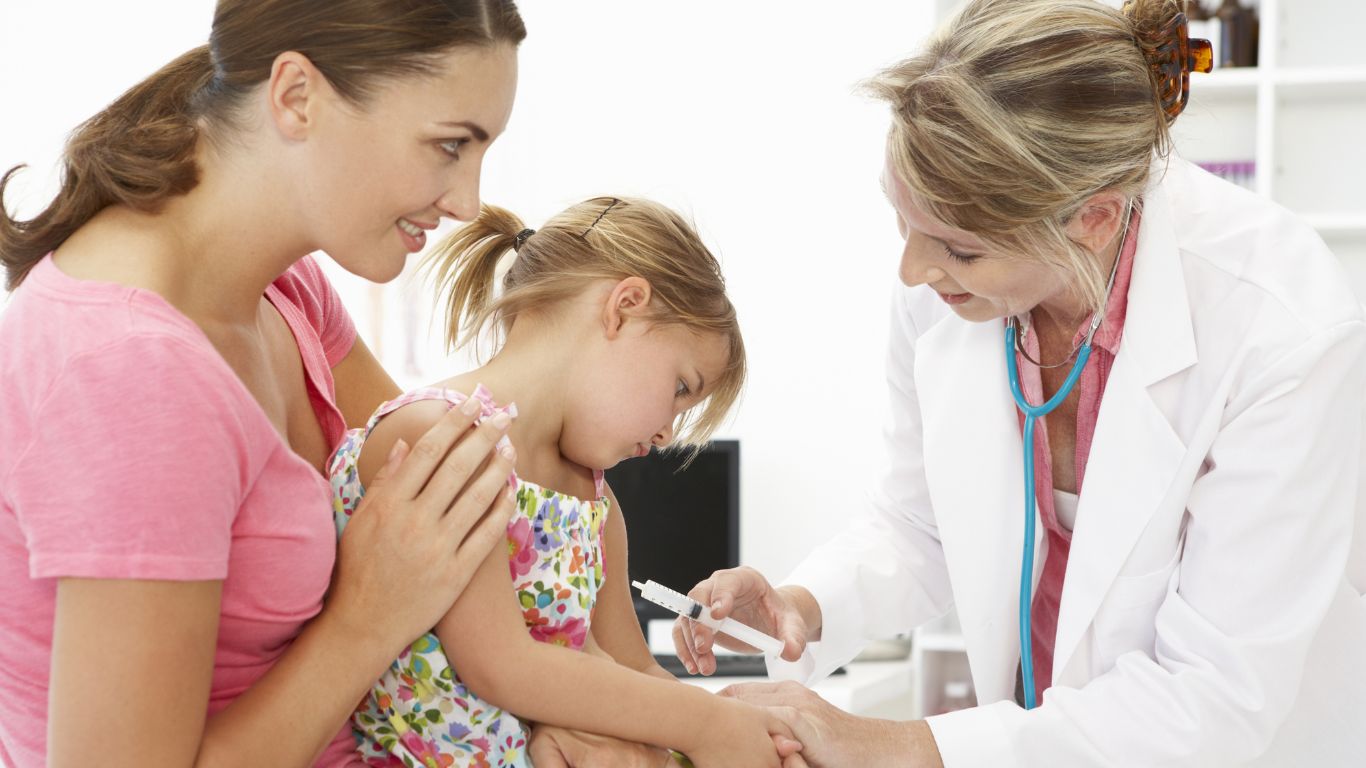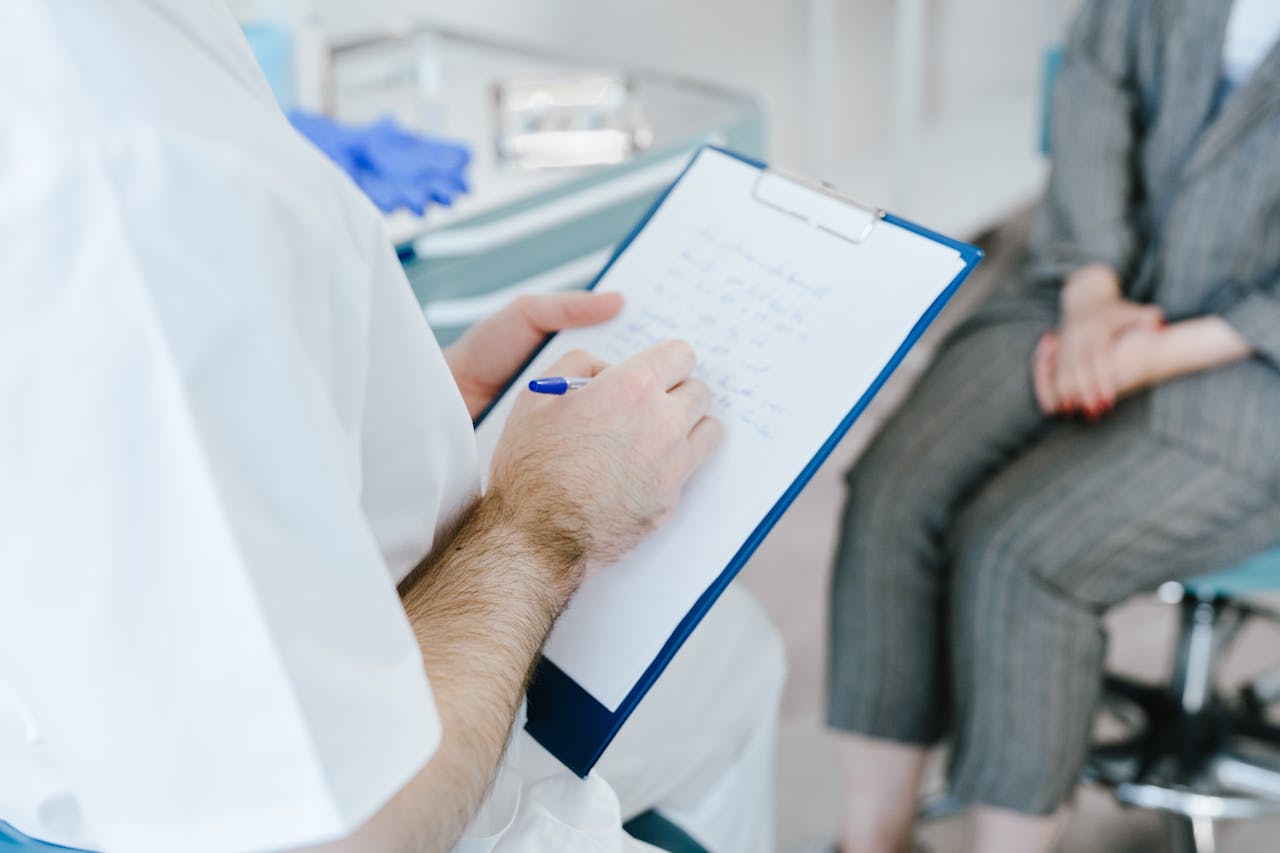The Health Checks for Kids That Should Never Be Skipped

Ensuring your child receives the right health checks at the right time is essential for their growth, development, and overall well-being. Regular check-ups allow for early detection of health concerns, ensuring timely and effective treatment. In Australia, various health assessments are recommended throughout childhood to support a child’s physical, cognitive, and emotional health.
Why Are Regular Health Checks Important for Children's Growth and Development?
Health checks are crucial for early detection of medical, developmental, and behavioural concerns. By staying on top of routine check-ups, parents can address potential issues before they become serious and ensure their child receives timely interventions if needed.
Essential Health Checks for Kids by Age Group
Newborn and Infant Health Checks
Newborn Screening Test (Heel Prick Test)
Performed within the first 48 to 72 hours of life, this blood test screens for rare but serious genetic conditions such as cystic fibrosis, congenital hypothyroidism, and metabolic disorders. Early detection can significantly improve health outcomes.
6-Week Check-Up
This crucial check-up includes assessing your baby’s weight, length, head circumference, vision, hearing, reflexes, and overall development. It is also the ideal time for the first set of scheduled vaccinations.
Vaccinations in Early Childhood
Immunisations play a critical role in protecting babies from preventable diseases. The Australian National Immunisation Program (NIP) outlines immunisation schedule that includes vaccines for hepatitis B, diphtheria, tetanus, pertussis (whooping cough), polio, rotavirus, pneumococcal disease, and more.
Toddler and Preschool Health Checks
Developmental Milestone Assessments
These check-ups assess speech, motor skills, cognitive abilities, and social behaviours. Doctors or child health nurses use tools such as the Ages and Stages Questionnaire (ASQ) to monitor progress and identify developmental delays early.
Vision and Hearing Tests
Vision and hearing screenings help detect any impairments that could affect learning and development. Many childhood vision issues, such as amblyopia (lazy eye), are easier to correct if identified early.
Dental Health Checks
Even before the first tooth appears, oral health is crucial. Regular visits to a children’s dentist help establish good oral hygiene practices and prevent early childhood cavities.
School-Age Health Checks
Annual Growth and Nutrition Assessments
Monitoring weight, height, and body mass index (BMI) ensures children are growing at a healthy rate. Paediatricians may also provide guidance on balanced nutrition, especially for fussy eaters or children with dietary restrictions.
Mental Health and Emotional Well-Being
Emotional well-being is just as important as physical health. Regular check-ups allow doctors to assess a child’s mental health, screen for anxiety or behavioural concerns, and provide referrals to specialists if needed.
Immunisations for School-Age Children
Boosters for vaccines like measles, mumps, rubella (MMR), and diphtheria-tetanus-pertussis (DTPa) are essential during primary school years. The HPV vaccine is also recommended for preteens.
Adolescent Health Checks
Puberty and Hormonal Development
Doctors assess physical changes, growth spurts, and hormonal health. Discussions around puberty, menstrual health, and reproductive education can help teenagers navigate these changes confidently.
Mental Health and Emotional Well-Being
Adolescents may experience stress, anxiety, or mood disorders. Regular check-ups provide a safe space to discuss concerns and access support if needed.
Skin Health Checks
Given Australia’s high UV exposure, checking for moles or skin irregularities is crucial. Teenagers should be educated on sun safety and the importance of skin cancer awareness.
How Often Should Kids Have a Health Check? A Parent’s Guide
Regular health check-ups are essential to monitor your child’s growth, development, and overall well-being. Here’s a general guideline for how often children should see a doctor at different stages of life:
- Newborns & Infants – At birth, 1–4 weeks, 6–8 weeks, 4 months, 6 months, 12 months
- Toddlers & Preschoolers – 18 months, 2 years, 3 years, 4 years
- School-Age Children – Every 1–2 years for general health assessments, including vision, hearing, and growth checks
- Adolescents – Every 1–2 years or as needed, with a focus on mental health, puberty, and overall wellness
These routine visits ensure early detection of any potential health concerns and provide parents with guidance on their child’s development.
Common Questions Parents Ask About Children's Health Checks
How often should my child have a health check-up?
It depends on their age, but newborns and infants should have frequent check-ups, while school-age children and teenagers should visit a GP at least once a year.
What are the signs that my child needs an extra health check?
Unexplained weight loss or gain, frequent infections, developmental delays, changes in behaviour, or prolonged fatigue may indicate the need for a doctor’s visit.
When should my child have their first eye test?
Basic eye tests are done at birth and during early childhood check-ups, but a full optometry test is recommended before starting school or earlier if concerns arise.
How do I know if my child has a food allergy?
Signs include rashes, vomiting, swelling, diarrhoea, or difficulty breathing after eating certain foods. A GP can refer your child for allergy testing.
Should my child have a blood test during routine check-ups?
Not always, but blood tests may be needed to check for iron deficiency, allergies, diabetes, or other medical concerns based on symptoms.
How can I prepare my child for a health check-up?
Explain the process in simple terms, bring comfort items for younger children, and encourage open communication with their doctor.
Can I request additional screenings for my child’s health?
Yes, parents can discuss concerns with a GP and request extra tests if they suspect underlying health issues.
What should I do if my child is anxious about doctor visits?
Reassure them, make visits a positive experience, and consider role-playing check-ups at home to familiarise them with the process.
Book a Children’s Health Check Today
At Buderim Medical Centre, we offer comprehensive paediatric health services in Sunshine Coast to support your child’s wellbeing at every stage. Our experienced doctors provide thorough assessments, vaccinations, and personalised care tailored to your child’s needs. We welcome families from Buderim and surrounding areas, ensuring easy access to expert healthcare for your little ones.
Book an appointment today to ensure your child receives the best possible care for a healthy future.





